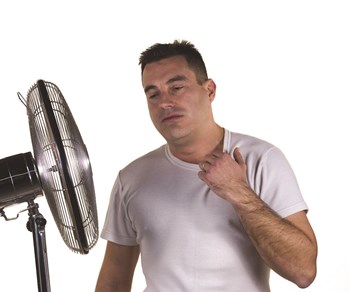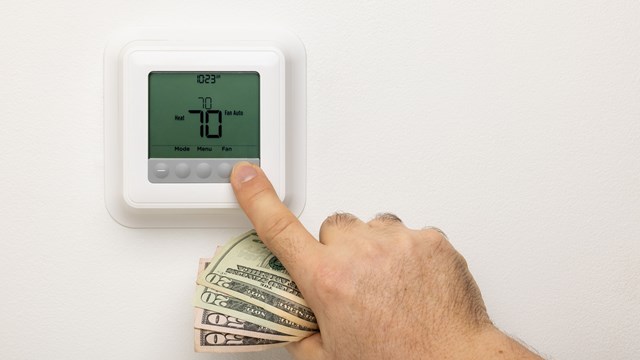
After a mild winter but cold spring that New Jerseyans are now experiencing, summer can’t come soon enough for many Garden State’s residents. But don’t be surprised when people start forgetting about the cold and start complaining about the sweltering heat that usually heads our way in July and August. Cooling an entire building can get very expensive, but no one wants a long, hot, miserable summer. So it’s up to your building’s administration and residents to devise a plan now that allows for both comfort and thriftiness.
Community Climate Control
Keeping cool during the summer months can involve climate control at both the macro level (in the form of rooftop chiller equipment and other common infrastructure like outdoor HVAC units) or at the micro level (in the form of window-mounted A/C units, wall thermostats, etc. and central air conditioning). Building administrators and residents alike must strike a balance between comfort and savings. And to most building communities, money is always an issue.
When it comes to how all those components work together, says Edward H. Brzezowski, PE, the vice president of the energy/MEP services division for Falcon Engineering in Bridgewater, says that each building or condo complex is different.
“Medium- and high-rises may have a complex central cooling plant system—typically a chiller, cooling tower, dual temperature or chilled water and condenser water pumps—with air handling units serving chilled water coils to common spaces and fan coils or PTACs serving tenant spaces,” he says. Other building types may have cooling provided by rooftop or split A/C systems, window A/C units, or packaged terminal air conditioners (PTACs).
Frank Lauricella, the business development manager for The Daylight Savings Company, an energy-efficiency consulting engineering company in Goshen, New York, whose company works closely with the New Jersey Clean Energy program and the New Jersey SmartStart program, says that since most of the multifamily building stock in New Jersey is older, air conditioning is generally provided at the individual unit level, meaning that there is no central A/C.
“Of course larger and newer buildings that have central air have air handlers, chillers, etc.,” he says. “A common central system combines heating and cooling through individual units in the apartments that can be controlled. They can be water or air-sourced and usually include heat pumps.”
Cooling 101
Building administrators and managers can keep their building-wide air conditioning equipment working at peak condition by scheduling regular maintenance for the units, including changing filters and making sure thermostats are working properly.
Brzezowski says it’s vital that a building utilize a building energy management system and work order maintenance (breakdown, scheduled and preventive) system, plus keep equipment records and service logs in a central place.
“Meters dedicated to energy use and water use (where applicable) of the equipment can help track performance over time and under various weather conditions,” he says. “Portable data loggers and wireless sensors can also help track how the system is cooling the building and various space types. Depending on the cooling system type, control valves need to be maintained, motors and pumps serviced, coils cleaned and filters replaced and made sure they are fitting properly and controls and sensors calibrated or replaced.”
According to experts, when it comes to chillers, you need to check that the chilled water temperature is correct (typically 45 degrees F is appropriate), and to help save energy, you can raise the temperature when the outdoor temperature is not midsummer hot and for buildings that utilize cooling towers, the most important thing is to make sure the tower fans are operating properly.
If a building is using an HVAC system, a sound maintenance program is vital—and that includes cleaning the air ducts. According to Michael Vinick, president of Massachusetts-based Duct & Vent Cleaning of America, and a board member of the National Air Duct Cleaners Association (NADCA), every time an air conditioner is in operation, dust, dirt particles, debris, pollen, pet dander and other pollutants are drawn into the duct system and must be cleaned.
In the Wall
It’s no surprise that in New Jersey, window and through-wall air conditioner units are the most popular form of cooling in co-ops and in condos. One only needs to look up while walking down a street to see and hear the numerous A/C units operating on hot days. New Jersey’s electric ratepayers pay the fourth-highest retail rates in the country.
Lauricella believes a great step to improve efficiency and save money is to use Energy Star rated air conditioning systems with controllable thermostats.
Rebates are available through many New Jersey Clean Energy programs. The COOLAdvantage Program provides rebates for qualifying high efficiency central air conditioners, ductless mini-split A/C units and heat pumps. To be eligible, you must purchase, install, and operate a system that meets all applicable efficiency requirements. Call 866-NJSMART or visit www.njcleanenergy.com for more information.
Some of the initiatives in Governor Chris Christie’s Energy Master Plan for New Jersey, are plans to expand Distributed Generation (DG) and Combined Heat and Power (CHP) and promote the development of solar projects.
Monthly maintenance is another important way to ensure that the air conditioners are running at their best. Before summer begins, air filters should be cleaned and you should check that there is no air leakage to or from the outdoors. It also helps for building staff to know a thing or two about installation and upkeep.
If a wall unit is broken, residents should never attempt to adjust or perform maintenance on the systems that are building responsibility, or parts they do not feel comfortable or familiar with. Given the chemical hazard posed by the Freon used as a coolant in some air conditioning units, professionals should be called in for the job.
The Role of the Resident
While qualified professionals or building staff can and should see to some aspects of AC upkeep, there are plenty of steps that unit owners and shareholders can take to maximize the efficiency and useful life of their A/C units and in-unit components.
Experts believe it is imperative to keep air filters clean, turn off the units when not in the room and operating on a high fan speed for peak efficiency—the highest air temperature setting while still keeping the room comfortable.
In an effort to save energy and money, Brzezowski says there are several things residents can do. They should check to make sure their cooling coils are clean and free flowing, and that their air filters are clean and properly fitted.
“Units should run only when the space is occupied. Remote programmable thermostats should be set to bring the space to comfortable conditions during occupancy,” he says. “Windows and doors should be closed. Window shade and blinds should be used to control sunlight and heat gains. Energy-efficient lighting can help on reducing internal gains and cooling loads.”
Government Resources
Lauricella says a well-managed building has operating manuals for all system, and that an inspection and scheduled maintenance should be a part of the manuals. He also adds that NYSERDA and utilities have programs aimed at reducing energy costs, and offer on-going tips on their web sites.
BPU’s Pay for Performance is a comprehensive energy efficiency program that provides incentives towards whole-building energy improvements that includes existing buildings and new construction. NJ SmartStart Buildings is another BPU program aimed at reducing energy costs and can provide a range of support—at no cost—to yield substantial energy savings now and for the future. For additional information go to www.njcleanenergy.com.
It’s always nice to be cool, but remember that blasting the air to its full capacity can be costly and can even play a part in a blackout. Be smart about being cool and help your building save energy and keep the costs from getting too high.
Keith Loria is a freelance writer and a frequent contributor to The New Jersey Cooperator.









Leave a Comment